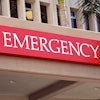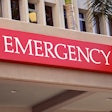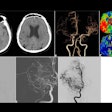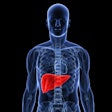A "real-world" study of more than 57,000 U.S. veterans diagnosed with lung cancer shows that lung cancer screening (LCS) saves lives, according to research published June 10 in the journal Cancer.
A team led by Donna Edwards, MD, PhD, of the University of Michigan in Ann Arbor reported that lung cancer patients who had undergone lung cancer screening via low-dose CT (LDCT) had rates of early disease diagnosis almost double than those who did not, at 52% versus to 27%. They also had lower rates of death from any cause and lower rates of death from cancer.
"It is incredible to witness how dedicated national efforts to increase lung cancer screening … can lead to substantial improvements in lung cancer outcomes," co-author Michael Green, MD, PhD, of the University of Michigan and the Veterans Affairs Ann Arbor Healthcare System, said in a statement released by the journal.
Lung cancer is the leading cause of cancer deaths worldwide, and most patients are diagnosed at an advanced stage, the group noted. The U.S. Preventive Services Task Force's (USPSTF) current screening guidance recommends that adults ages 50 to 80 with at least a 20-pack-year smoking history who currently smoke -- or have quit within the past 15 years -- should undergo annual LDCT imaging for lung cancer. But since lung cancer screening's benefits have been demonstrated primarily through clinical trials, Edwards' team investigated its real-world effectiveness among patients in the Veterans Health Administration (VHA) healthcare system, using data from between 2011 and 2018.
"Participants of randomized controlled trials are often more educated or healthier than the general population, and such disparities in real‐world patients from trial patients may raise concern over the applicability of trial results to the general population, who are often more elderly or frail or have more medical comorbidities," the group noted.
The study included information from 57,919 individuals diagnosed with lung cancer. Of these, 2,167 (3.9%) underwent at least one low-dose CT screening exam before diagnosis. There were no significant difference in age, gender, or race between those who had prior screening and those who did not.
The researchers found the following:
| Outcome comparison among patients unscreened and screened for lung cancer | ||
|---|---|---|
| Measure |
Unscreened patients |
Screened patients |
| Rates of early-stage disease |
27% |
52% |
| Rates of death from any cause |
72.1% | 49.8% |
| Rates of death from cancer |
70.3% |
41% |
| Overall survival rates | ||
| Year 1 |
56.6% |
81.2% |
| Year 2 |
41.1% |
69.9% |
| Year 5 |
22.3% |
44.9% |
| Lung cancer specific survival rates | ||
| Year 1 |
58.7% |
82.5% |
| Year 2 |
44.4% |
74.3% |
| Year 5 |
29.7% |
59% |
"Despite robust randomized clinical trial data demonstrating a mortality benefit to LCS, we observed that only a small minority of veterans with lung cancer (3.9%) obtained an LDCT before their lung cancer diagnosis, similar to other reported rates," the team wrote. "However, the use of screening in this small subset of veterans was associated with a compelling stage migration effect as well as an improvement in overall survival and lung cancer-specific survival, presumably due to cancer diagnosis and intervention at an earlier stage of disease."
The research underscores the benefits of lung cancer screening, according to Edwards and colleagues.
"These findings provide corroboration of the results of randomized LCS trials in clinical practice," they concluded. "We hope that the striking association between LCS, earlier stage diagnosis of lung cancer, and improved mortality spurs a more robust uptake of this life‐saving intervention into clinical practice."
The complete study can be found here.




















